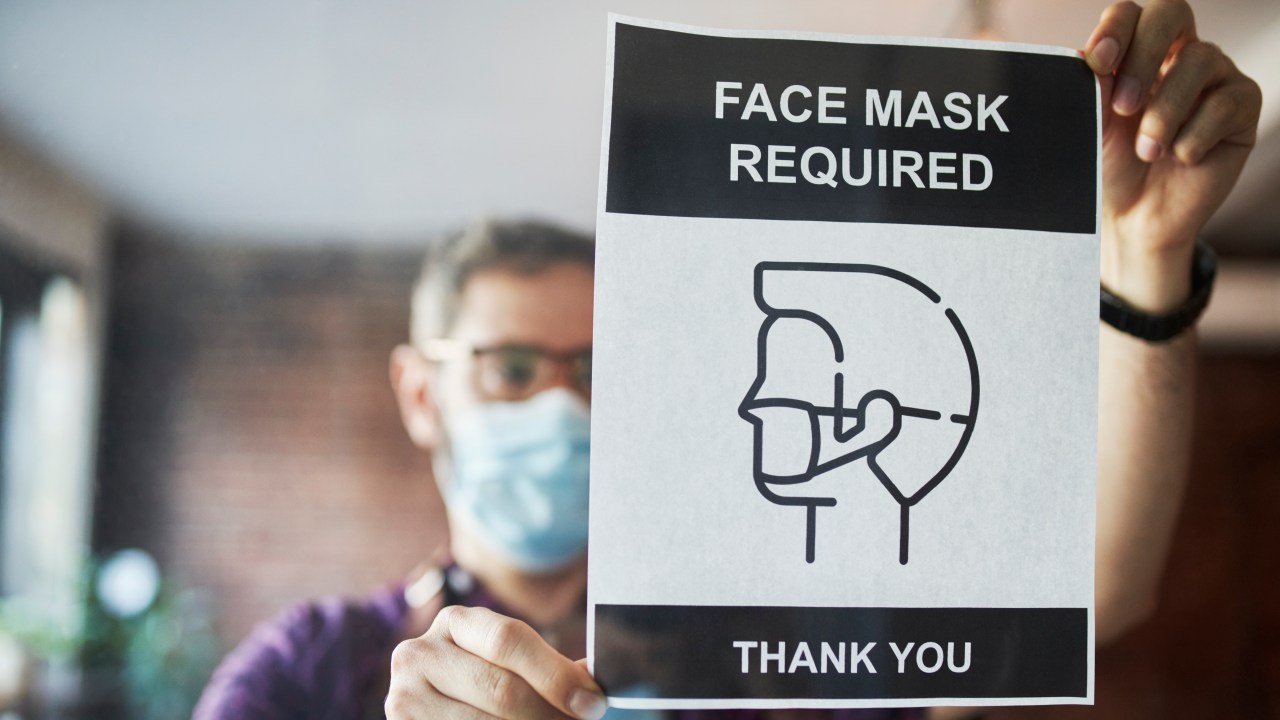Health groups and some of Australia’s leading doctors have used submissions to the COVID-19 Response Inquiry to heavily criticise parts of the nation’s pandemic response.
The inquiry, which is due to hand down its final report in September, has been bombarded by hundreds of Australians eager to share their views on how federal, state and territory governments could have acted differently whilst the country fought off the deadly virus.
While many responses focused on lockdowns, the handling of aged care and poor information availability, medical professionals mostly homed in on the need for a single coordinating authority as the key issue.
Dr Nick Coatsworth, Australia’s former deputy chief medical officer, was damning of the “policy discord” on display between each state and territory, arguing the nation must create a “national Biosecurity Emergency” provision which would allow the federal government to take full control of the response.
“Although the notable discordance between State and Federal governments was clear to the public in the second half of 2020, the issue arose almost immediately with divergent policy on quarantining of school and university students returning from China in January of 2020,” he wrote.
“Policy discord within the Federation has notable disadvantages that cannot be excused by framing each jurisdiction as having individual or specific needs during the pandemic that vary substantially from those as a nation.
“As a hypothetical example, whilst a ventilator sharing policy was formulated by myself and endorsed by Directors-General of Health in the first half of 2020, it is almost impossible to conceive that such a strategy could have been effectively implemented in the political climate that rapidly took hold.
“I believe only one solution is possible to avoid this situation in the future. I strongly encourage the Inquiry to recommend amendment of the Biosecurity Act to ensure that all disease control powers are vested in the federal government during a national Biosecurity Emergency.”
Dr Coatsworth was not the only one to raise the suggestion politics interfered with Australia’s response.
Melbourne University’s Head of Infectious Disease Dynamics Unit, Centre for Epidemiology and Biostatistics, Professor James McCaw, listed amongst his concerns about the nation’s response the “political oversight” may have prevented the quick and effective release of accurate scientific data to the community.
Dr Kerryn Phelps, past president of the Australian Medical Association and former MP for Wentworth, agreed, writing in her submission “political decisions were made, and public health advice was provided based on this”.
As a result, she argued, authorities ended up spreading “confusing misinformation” instead of providing the public with timely and accurate updates as the virus spread following its arrival in Australia.
According to Dr Phelps, this included the claim COVID was not airborne, that there was “no need for masks”, that “herd immunity” was possible, and that children did not spread the virus.
All of that information was later found to be false by health experts.
This ultimately created “mistrust” in authorities later in the pandemic, Dr Phelps continued, adding that “insufficient effort” had been made to address the issue, even in the time following the pandemic’s end.
Additionally, she claimed the late 2021 decision to “let it rip” and ease many restrictions resulted in “a massive number of infections and excess COVID-related deaths estimated by actuaries to be 20,000 in 2022”.
While the AMA took a more positive view, it too acknowledged Australia’s response was “hindered” by different policy approaches across jurisdictions.
“Australia’s pandemic response was most effective when the federal government and the National Cabinet coordinated and cooperated to manage the impact of the pandemic,” the peak medical body wrote.
“The AMA was broadly supportive of measures, policies and programs implemented including lockdowns, mandatory isolation periods, social distancing and income support to name a few.
“However, there were many examples of inconsistencies in policies between jurisdictions which hindered the public health response. When different advice and policies were in place, such as mask mandates and venue capacity limits, the public messaging was undermined.”
The AMA also highlighted the decision by several state Premiers to publicly undermine their Chief Health Officers, saying the result was a falloff in trust from both the public and medical professionals looking for leadership from the government.
Victoria’s Allied Health Professionals Association put its own position on state and federal conflict during the response much more bluntly.
“Lack of a Commonwealth Centre for Disease Control, such as seen in the USA and Europe has been a huge contributor to the absence of a co-ordinated and consistent response that was needed,” they wrote.

Teal MP Monique Ryan, however, was scathing of the federal government itself, claiming the “extent and severity” of the then Morrison government was such that she had difficulty limiting her submission to three pages.
Ms Ryan highlighted the decision to outsource elements of Australia’s vaccine rollout, arguing it resulted in “resulted in increased case numbers and deaths” due to delays in shipping, as well as a lack of transparency about decision-making and advice.
The teal MP also repeated her past calls for a Royal Commission into Australia’s response, something which has been ruled out by the Albanese government and strongly opposed by several states.
She was backed by the AMA, who argued it was “imperative” the Response Inquiry ensure thorough scrutiny was applied to all levels of government to ensure lessons were learned and implemented ahead of any future pandemic.
“We are concerned that governments are all too willing to put the past behind us and not seek to properly evaluate and learn from Australia’s response to the COVID-19 pandemic – likely because this might invite criticism of their actions,” they wrote.
“It is imperative upon the Taskforce to ensure that the this does not occur. There are important lessons still to learn and there are still improvements to be made.”
Professor McCaw echoed that sentiment, claiming there had been a concerning tendency from government to revert back to pre-pandemic settings rather than learn lessons from COVID-19.
“The major (global and national) advances that were made during the COVID-19 response are at genuine risk of being lost in Australia,” he wrote.
Most experts agreed this should include the at times divisive issue of mandatory COVID vaccines, as the fallout from government mandates continues to affect Australians across the country.
Dr Phelps, who suffered a vaccine injury after receiving a Pfizer dose, highlighted that “little was known about the potential range of adverse effects of the vaccine”, during the early stages of its rollout, despite authorities insisting on their “safety and efficacy”.
In addition, she argued that difficulty in obtaining information about adverse reactions to the COVID vaccines led many patients to report the were “not believed”, leading them to set up advocacy groups to share experiences and find support.

Dr Coatsworth echoed those points, noting the “personal cost to individuals who did not receive the COVID-19 vaccination was substantial and not limited to the pandemic period”.
“Australians who chose not to be vaccinated suffered life changing events including job loss, for which there was limited or no recourse to typical statutory authorities such as Fair Work Australia.
“The political discussion around mandates falsely conflated Australians who were ‘anti-mandate’ with ‘anti-vaccination.’
“If not yet proven, it is at least highly plausible that this led to more Australians than would otherwise have been the case being pushed to the margins of public health discourse and into the arms of true conspiracy theorists and anti-vax influencers.”
Some, however, went further still, attacking the effectiveness of the vaccine campaign itself.
Queensland GP Dr Melissa McCann, who is leading a class action against the federal government, claimed the rollout had been a “complete failure, despite the multibillion-dollar investment”.
“The success of a vaccination campaign is not measured by the percentage of population who were convinced to be vaccinated, despite this being reported by various official sources as evidence of a successful program,” she wrote.

“A successful vaccination campaign ought to result in the majority of vaccinated persons not becoming infected with the disease the vaccines were designed to protect against.
“A successful campaign would result in reduced number of cases and reduced transmission of disease throughout a population following the vaccination campaign.
“It ought to result in small numbers of adverse events after vaccination and such events comparable with traditional vaccines. It ought to result in an overall reduction in severe disease, deaths caused by the disease and reduction in overall excess mortality across a population.”
While evidence suggests COVID-19 vaccines may have done little to prevent the spread of infection, most scientists agree they saved millions of lives worldwide.

